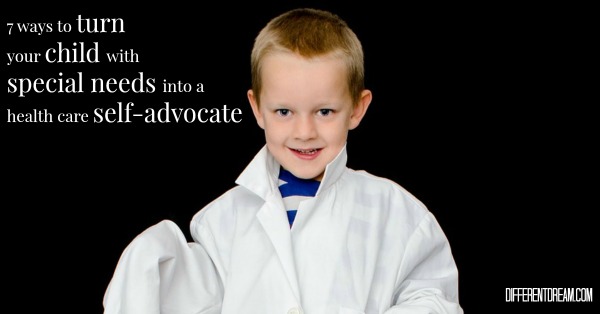How to Raise a Health Care Self-Advocate

Once upon a time, my husband and I were our son’s sole health care advocates. For the first 4 years of his life, we faced numerous life and death decisions concerning surgeries, medical tests, and treatment. After those dramatic early years his health stabilized, and our decisions about his health care were more run-of-the-mill.
When he was 15, medical tests showed another major surgery was needed. When our son, who had grown into a strong-willed, intelligent adolescent heard the news, he made clear to us and the surgeons that he expected to be part of the decision-making process. At first my husband and I were taken back by his demand. And then we did the math.
In 3 short years, our son would turn 18, at which time he would be in charge of his own health. Therefore, we made everything regarding his upcoming surgery–the pre-op tests, doctor consultations, even life and death decisions–into a self-advocacy training exercise. Here’s what we learned about raising a health care self-advocate during that experience and as our son entered adulthood.
- Write down your child’s medical history. You may remember what treatments (for physical, mental, and emotional ailments) your child received, but your child won’t. Our son has no explicit memories of the tests, treatments, and 7 surgeries he went through before he was 5. So when he was a young adult, I wrote a narrative that included the hospitals where the surgeries took place, the doctors and surgeons who treated him, and anything else I could remember. That medical history equips him to be a health care self-advocate.
To read the rest of this post, visit Key Ministry’s Special Needs Parenting blog.
Do you like what you see at DifferentDream.com? You can receive more great content by subscribing to the quarterly Different Dream newsletter and signing up for the daily RSS feed delivered to your email inbox. You can sign up for the first in the pop up box and the second at the bottom of this page.
By Jolene
Jolene Philo is a published author, speaker, wife, and mother of a son with special needs.
2 Comments
Submit a Comment
Subscribe for Updates from Jolene
Related Posts
How Parents Can Stay Strong When Advocacy Efforts Seem to Fall Short
Guest blogger Catherine Boyle encourages parents to stay strong when they find their advocacy efforts fall short.
Unhappy New Year
Guest blogger Kimberly Drew brings perspective and help for weary caregivers. This new year is not ringing in so well for me. I would tell you about everything that has made this an unhappy new year thus far, but it would use up my whole article! I can pretty...
EA/TEF Awareness Day 2022 is Here!
Celebrate EA/TEF Awareness Day by looking back on ten diverse Different Dream blog posts by EA/TEF parents and survivors.






It’s hard isn’t it Maree? But oh so necessary! Jolene
Oh, I can’t believe I somehow skipped number 7. I do need to start turning over the reigns.